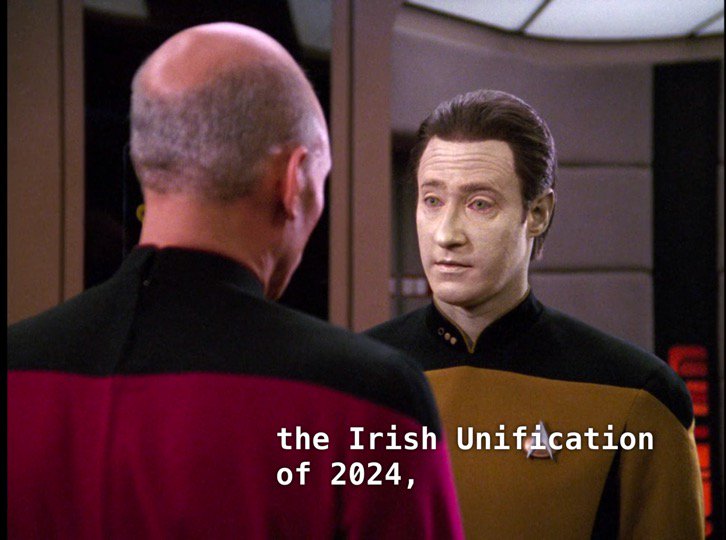As Stormont returns to normal operations after being collapsed for nearly two years, it has furthered the ever-present discussion on Irish unity.
The restoration of “power-sharing” will see the north have its first First Minister from a nationalist background. This of course has sparked discussion on the future of the statelet, bearing in mind that the north as a political entity was specifically created to ensure continued unionist control in the region.
What is the significance of this then? Mary Lou McDonald, president of Sinn Féin, has said that a united Ireland is now within “touching distance”. The reality however, is that the Sinn Féin leadership has been making such predictions of an imminent border poll since 1998.
In 2003 Martin McGuinness predicted that Irish unity would happen by 2016, and again in 2012 he said that a border poll could happen in 2016 or 2020. In 2020 Mary Lou herself was predicting that a border poll could be happening in 2023-2025, but other times she has been a bit more cautious with anytime up to 2030 being predicted. I have no crystal ball myself but I certainly wouldn’t be taking betting tips from Sinn Féin given this track record.
This is nothing new, nor unique to contemporary Sinn Féin. After all, we have spent the last 103 years balancing on a “stepping stone” to freedom, as Michael Collins described the outcome of the Anglo-Irish Treaty. It is perhaps in 1921 that the parallel is most apt.
In 1998 people in the north were assured that Irish unity was now possible through “peaceful” and “democratic” means. The details of how this would happen were never developed, and the Good Friday Agreement instead centralised all authority for a border poll in the hands of an unelected British Secretary of State for the north. The proposal of such a poll would also be subject to the approval of the British parliament.
In 1921, the treatyites who betrayed the Irish Republic said that the treaty contained the mechanisms for a united Ireland which would undoubtedly come about by 1925. The prediction was that the boundary commission would award swathes of land to the Free State, and thus make the north economically unviable
And yet here we are.
The ambitions of supposed republicans within Sinn Féin seems to also be increasingly tempered, and the overall attitude towards Irish unity increasingly couched in economic language.
The legal vagueness in the Good Friday Agreement has led to the discussion around a united Ireland increasingly being dominated about the mere mechanics of a border poll, about its legitimacy, and the possibility of calling one in the first place. We are indeed a far cry from demands for an immediate British withdrawal and an end to 800 years of occupation.
Instead, would-be republicans and nationalists have become bogged down in the legal trap of another treaty that was composed to maintain British interests in Ireland. It seems too that Sinn Féin’s own MPs are confused about the reality of the treaty which they supported and agreed to.
Chris Hazzard, Sinn Féin MP for South Down tweeted that “In keeping with the Good Friday Agreement, the people of Ireland will determine our own constitutional future. The British parliament has no right, nor will ever have the right to interfere in this”.
The reality is that the wording of the Good Friday Agreement effectively enshrines control of Irish self-determination in the hands of the British government, stating:
“(2) But if the wish expressed by a majority in such a poll is that Northern Ireland should cease to be part of the United Kingdom and form part of a united Ireland, the Secretary of State shall lay before Parliament such proposals to give effect to that wish as may be agreed between Her Majesty’s Government in the United Kingdom and the Government of Ireland”.
This clause of course only applies in the event that a British Secretary of State authorises a poll to begin with, and the British government has now declared that “ Northern Ireland’s future in the UK will be secure for decades to come” and that a poll is not on the table anytime soon.
Instead every indicator over the last number of years has been that neither Labour nor the Conservatives have any intention of holding a border poll.
This recent development has merely confirmed what all genuine republicans have known – that the British government could never be trusted to deliver self-determination for the Irish people.
Nor should republicans put any faith in those who think our freedom could be achieved by begging Britain, or any of the imperialist powers Sinn Féin would wish to cosy up to on either side of the Atlantic.
As James Connolly recognised, it is only the Irish working-class who are the ones capable of achieving the long-suffered for Republic.

